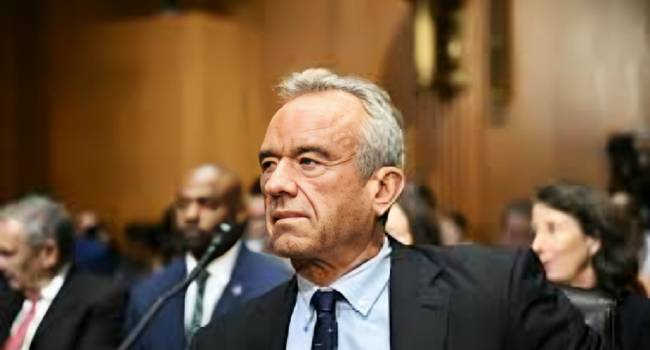A medical advisory group in the United States (US), reshaped under the influence of President Donald Trump’s health secretary and anti-vaccine campaigner Robert Kennedy Jr, has come under fire after recommending changes to the nation’s childhood immunisation programme.
At its first meeting since being reconstituted, the Advisory Committee on Immunisation Practices (ACIP) voted against advising use of the combined measles, mumps, rubella, and varicella (MMRV) vaccine for children younger than four. Instead, the panel suggested parents opt for separate MMR and chickenpox jabs.
Medical specialists criticised the decision, pointing out that the combination vaccine has long been considered safe despite a slight risk of temporary febrile seizures.
“I’m still puzzled by why this came back as a point of discussion,” said Sean O’Leary, chair of the American Academy of Paediatrics’ Committee on Infectious Diseases. “The only thing I can think of is it’s another strategy to scare parents.”
Read Also: Former Surgeon General urges Trump to sack RFK Jr over vaccine policies
Although the panel confirmed that the MMRV shot would remain available through the federal Vaccines for Children programme, experts fear the mixed messaging could confuse parents and undermine confidence in vaccines.
Some participants expressed concern that the committee’s methods ignored broader scientific evidence.
Jason Goldman, President of the American College of Physicians, told the group: “You’re looking at very small data points and misrepresenting how it works in the real world and how we take care of our patients.”
The restructured ACIP has faced accusations of favouring ideology over science. Kennedy, who has long promoted debunked claims linking vaccines to autism, dismissed the panel’s former members and replaced them with individuals sympathetic to his views.
Public health leaders warned that the latest move risks eroding long-established protections.
“Parents like me depend on a childhood vaccine schedule built on science and trust. Every change should strengthen, not weaken, the safety net — that keeps our kids healthy,” said epidemiologist Syra Madad.
The committee postponed a decision on whether to remove the requirement for hepatitis B vaccination within 24 hours of birth, a standard that experts say prevents maternal transmission of the serious liver disease.
“Amending the advice could amount to a devastating decision,” O’Leary cautioned.
Despite criticism, ACIP chair Martin Kulldorff defended the body’s work, insisting it remained “pro-vaccine” and open to scrutiny.
However, infectious disease physician Wilbur Chen countered, “They do not intend to debate using sound, rigorous, reproducible science; they are echoing poor and falsified information.”
The panel is also expected to review recommendations on Covid-19 shots during the two-day session, including guidance on who should receive them and how they will be funded.



